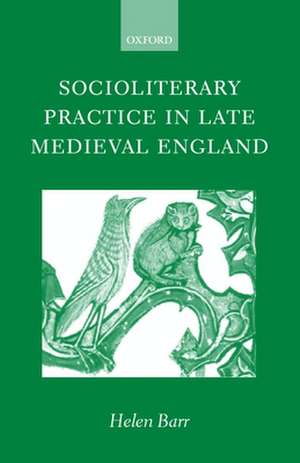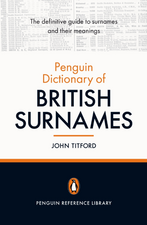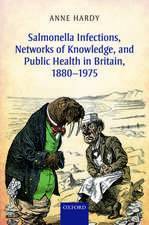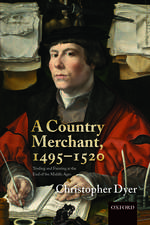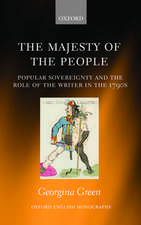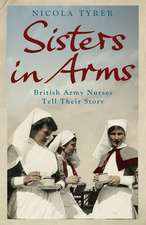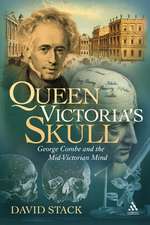Socioliterary Practice in Late Medieval England
Autor Helen Barren Limba Engleză Hardback – 6 dec 2001
Preț: 331.53 lei
Preț vechi: 426.47 lei
-22% Nou
Puncte Express: 497
Preț estimativ în valută:
63.45€ • 65.100$ • 53.18£
63.45€ • 65.100$ • 53.18£
Carte tipărită la comandă
Livrare economică 03-10 martie
Preluare comenzi: 021 569.72.76
Specificații
ISBN-13: 9780198112426
ISBN-10: 0198112424
Pagini: 238
Dimensiuni: 162 x 244 x 18 mm
Greutate: 0.49 kg
Editura: OUP OXFORD
Colecția OUP Oxford
Locul publicării:Oxford, United Kingdom
ISBN-10: 0198112424
Pagini: 238
Dimensiuni: 162 x 244 x 18 mm
Greutate: 0.49 kg
Editura: OUP OXFORD
Colecția OUP Oxford
Locul publicării:Oxford, United Kingdom
Recenzii
This book should be of interest both to theorists hoping to combine materialist and linguistic approaches, and to scholars seeking insights into such varied texts as Pearl, Wynnere and Wastoure, Geoffrey Chaucer's Manciple's Tale, Nun's Priest's Tale, and Legend of Good Women, John Gower's Chronica Tripertita, Richard the Redeless, the literature of Wycliffism, Mum and the Sothsegger, or The Boke of Cupide.
... Barr demonstrates that she can combine a sophisticated theory of discourse with detailed close readings, and that the literature of the late fourteenth and early fifteenth centuries preserves a complex but navigable mixture of discourses.
[Barr's] theoretical engagement shows a rigor that will satisfy both fellow theorists and some theory-skeptical medievalists; it will probably disappoint historians, but this book should be of great interest to literary scholars of the late Middle Ages in England, and those interested in Barr's linguistic materialism.
There are many fine insights in this volume, from the analysis of the literary and sociological discontinuities in Wynner and Wastoure to the discussion of the critical treatment of the clergy in Lollard texts (in line with that of the peasants elsewhere), and much more. In sum, the author is to be congratulated for raising so many issues in such a relatively short space.
Barr's command of primary sources is impeccable, and the range of critical references is impressive and very up to date.
By redefining Middle English literary writings as social discourses, Helen Barr connects a variety of late-medieval texts within a social environment newly energized by working-class ambitions and Wycliffite challenges.
... Barr demonstrates that she can combine a sophisticated theory of discourse with detailed close readings, and that the literature of the late fourteenth and early fifteenth centuries preserves a complex but navigable mixture of discourses.
[Barr's] theoretical engagement shows a rigor that will satisfy both fellow theorists and some theory-skeptical medievalists; it will probably disappoint historians, but this book should be of great interest to literary scholars of the late Middle Ages in England, and those interested in Barr's linguistic materialism.
There are many fine insights in this volume, from the analysis of the literary and sociological discontinuities in Wynner and Wastoure to the discussion of the critical treatment of the clergy in Lollard texts (in line with that of the peasants elsewhere), and much more. In sum, the author is to be congratulated for raising so many issues in such a relatively short space.
Barr's command of primary sources is impeccable, and the range of critical references is impressive and very up to date.
By redefining Middle English literary writings as social discourses, Helen Barr connects a variety of late-medieval texts within a social environment newly energized by working-class ambitions and Wycliffite challenges.
